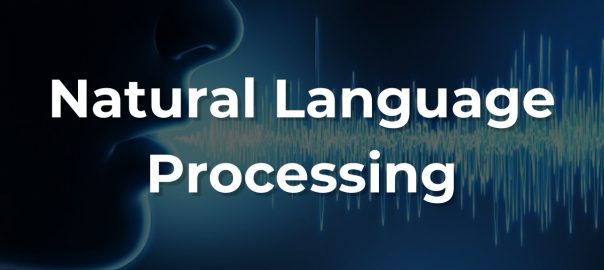Natural language processing (NLP), along with machine learning, deep learning, computer vision, and image recognition, are all branches of artificial intelligence (AI). The goal of NLP software is to build computer systems that will accept input in the form of spoken or written language and will provide spoken or written output i.e. communicate as if the computer system were a human.
Thanks to devices and applications like Alexa, Siri, Google Assistant and Cortana, much of the world’s population has at least a passing familiarity with NLP. It is being used today to perform a wide range of tasks across many industries. Until recently though, healthcare organizations have lagged behind others in capturing the benefits NLP delivers. However, it’s beginning to catch up.
Here are several use cases for NLP in healthcare that are already enhancing the field. Each of these will contribute to the larger digital transformation of healthcare as technology continues to advance.
……………………………………………………………………………………………………
Medical Coding and Billing
NLP streamlines the way medical coders extract diagnostic, procedural and other clinical information. Rather than a coder reading documents and converting them to alphanumeric codes, NLP reads them and submits the codes to the coder for verification. This allows the human coder to work on documents that NLP cannot process accurately, and reduces the overall expense of coding medical information. In the end, more accurate and thorough coding results in more accurate and timely billing.
Virtual Nursing Assistants
The rise of virtual nursing assistants capable of communicating with patients using NLP is underway. Regular communication between patients and the nursing bot extends care beyond the walls of the clinic room without burdening existing resources. Adherence to the patient’s care plan can be monitored, and triggers can notify providers of issues that need human attention. Patients can receive round-the-clock access to support and answers, including help with medication. Researchers in this field estimate virtual nursing assistants will reduce U.S. healthcare costs $20 billion by 2026.
Robot-Assisted Surgery
Some surgical robots use AI to apply information obtained from prior surgeries to the current case, leading to progressively better outcomes. Beyond the many well-known advantages, robotic surgery delivers, adding an NLP component allows surgeons to query the system and to direct its actions verbally.
Reducing “EHR Burnout”
Recent studies have indicated that healthcare providers spend nearly half of each day updating electronic health records and doing other administrative work, which is a matter of concern. It leaves them with very less time to perform their core functions of examining and discussing clinical, diagnostic and treatment information with patients in a face-to-face environment.
Entering and managing patient information is a major contributor to physician burnout. More than half of physicians surveyed in a Physician’s Foundation 2018 study, reported entering data into the EHR reduces their efficiency and detracts them from their interaction with patients. Systems that use NLP allow physicians to enter notes into the EHR by speaking to it. This saves time versus having to type. Besides, it also allows patients to amend or correct what the doctor is entering into the EHR.
Other Important Use Cases
While improving the clinical value of EHRs and reducing physician burnout is one of the most pressing challenges among healthcare organizations, NLP is contributing to the digital transformation of healthcare in several other ways. For example, NLP is helpful in
While improving the clinical value of EHRs and reducing physician burnout is one of the most pressing challenges among healthcare organizations, NLP is contributing to the digital transformation of healthcare in several other ways. For example, NLP is helpful in
- Comforting patients who become confused and anxious because they do not understand the data being presented to them through a portal website. For instance, NLP can explain the meaning of abbreviations and medical terminology. Rather than leaving the patient to worry or call the physician to explain the report, NLP can educate and possibly also calm the patient.
- Offering summarized updates of key ideas, concepts, and conclusions contained in large volumes of clinical notes, journal articles and other narrative texts gives practitioners quick access to volumes of information that would otherwise require a lot of time to read through.
- Easy extraction of data from free-form text and insertion into fixed-field data files, such as the structured fields in an EHR.
- Handling a physician’s free-form spoken or text query, which is especially useful for queries that require gathering and organizing data from multiple sources.
- NLP and other AI components can also accelerate the movement away from fee-for-service models and toward value-based healthcare by organizing unstructured health data derived from EHRs and other sources. Much of that “hidden” big data can shed light on health outcomes for entire populations of patients, which has been impractical until recently.
……………………………………………………………………………………………………
If you have any queries in this field, talk to Mindfire Solutions. For over 20+ years now, we have been the preferred Software Development Partner of over 1000+ Small and Medium-sized enterprises across the globe.
